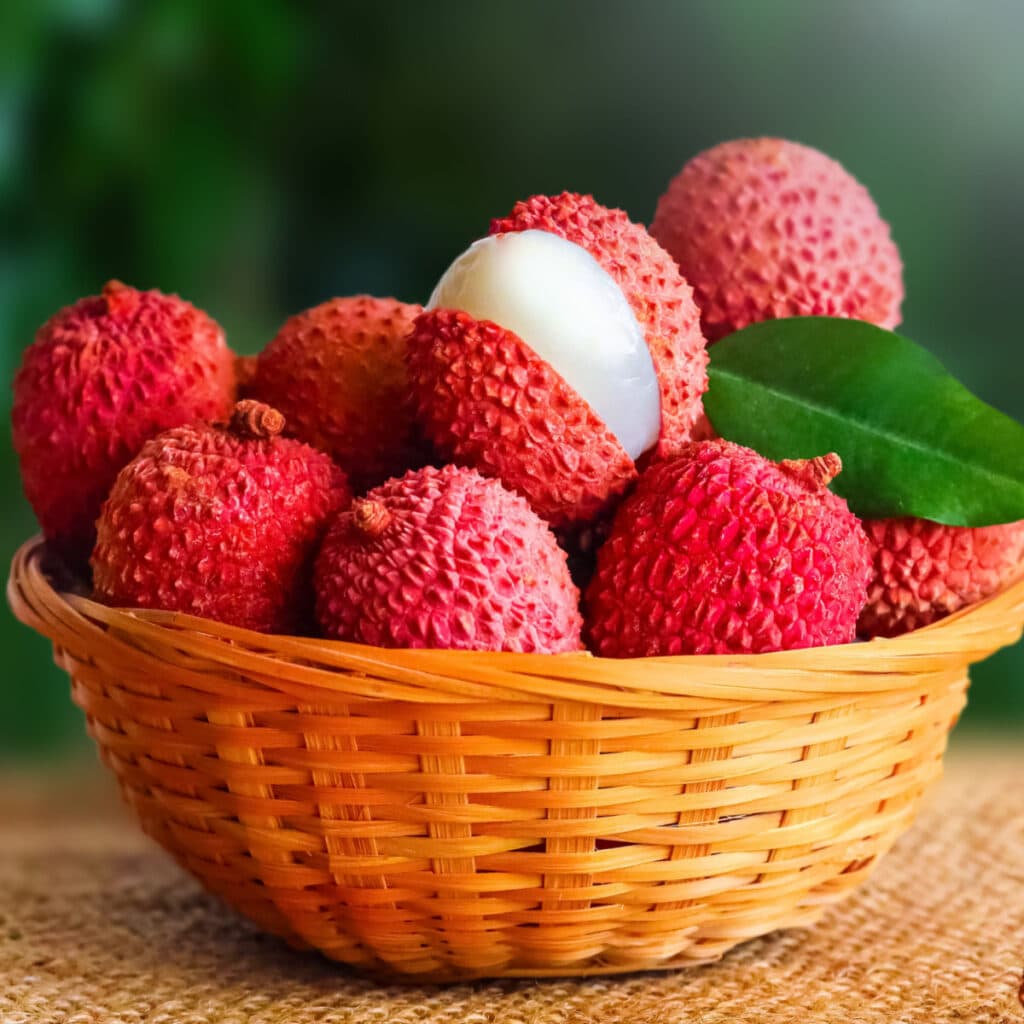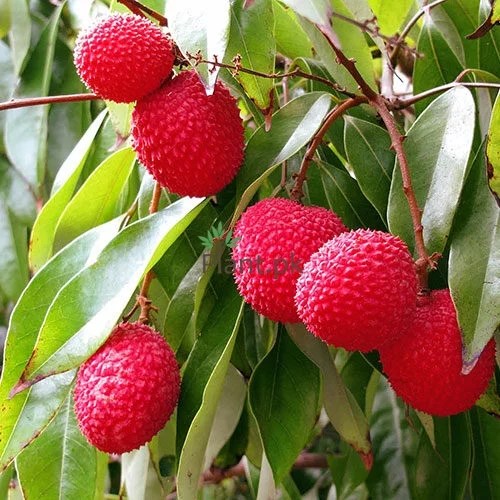A Complete Lychee Guide
Lychee, known as the “queen of fruits,” is a small, sweet tropical fruit that has won the hearts of people globally. This summer delight, native to southern Asia, is now relished worldwide. With its delectable flavor, vibrant look, and numerous health benefits, lychee is a true summer treasure. Dive into the wonders of this exotic fruit, from its history and benefits to how you can incorporate it into your diet.
1. Understanding Lychee
Lychee (Litchi chinensis) thrives on small trees in warm climates. Recognizable by its rough, pinkish-red rind and translucent, juicy interior, lychee encloses a single, inedible seed. Its delicate, floral fragrance and flavor, a mix of grape, rose, and citrus, make it a refreshing summer treat.

2. A Glimpse into Lychee’s History
With over 2,000 years of history, lychee originated in southern China, symbolizing prosperity and good fortune in ancient times. Emperors prized this luxury fruit, often having it delivered fresh. Over the centuries, lychee cultivation spread to India, Thailand, Vietnam, and other tropical regions globally.
3. Nutritional Highlights of Lychee
Lychee not only tastes delightful but also offers a wealth of nutrients:
- Vitamin C Powerhouse: Boosts immunity, fights infections, and promotes skin health.
- Rich in Antioxidants: Flavonoids and polyphenols protect against oxidative stress, reducing the risk of chronic diseases.
- Aids Digestion: High water and fiber content promote healthy digestion and prevent constipation.
- Enhances Skin Health: Vitamin C supports collagen formation, preventing premature aging.
- Supports Heart Health: Antioxidants improve circulation, lower blood pressure, and reduce heart disease risk.
- Strengthens Immunity: Vitamin C and antioxidants bolster the immune system.
4. Selecting and Storing Lychee
Choose lychees that are firm, plump, and have bright red skin. Slightly wrinkled skin indicates ripeness. Avoid overly soft or brown-spotted fruits. Fresh lychees are perishable and should be consumed within a few days. Refrigerate for up to a week or peel and freeze the flesh for long-term storage.
5. Enjoying Lychee
Lychee is versatile and can be enjoyed in numerous ways:
- Fresh: Peel and eat the juicy flesh directly for a refreshing snack.
- Juices and Smoothies: Blend with other tropical fruits for exotic beverages.
- Fruit Salads: Add to fruit salads for extra sweetness and texture.
- Sorbet and Ice Cream: Puree and freeze for a delicious sorbet or incorporate into ice cream.
- Cocktails: Pair with rum or vodka for tropical cocktails and mocktails.
- Cooking: Use in stir-fries, salads, or with grilled meats for a sweet-savory contrast.

6. Health Precautions
While lychee is nutritious, consider the following:
- Moderation: Due to its natural sweetness, consume in moderation, especially if you have blood sugar concerns.
- Unripe Lychee: Unripe lychees can cause hypoglycemia. Ensure they are fully ripe before consumption.
- Allergies: If allergic to related fruits like rambutan or longan, try lychee in small quantities initially.
7. Cultural Significance
In many cultures, lychee symbolizes good luck and prosperity. In Chinese culture, it is a popular gift during the Lunar New Year, symbolizing abundance. Its sweet, refreshing nature also makes it a staple in traditional Asian desserts.
Conclusion
Lychee is an exotic, delicious fruit that delights the palate and offers numerous health benefits. With its rich nutritional profile and versatile culinary uses, lychee is a summer gem. Incorporate this tropical fruit into your diet to enjoy its refreshing taste and health rewards.
